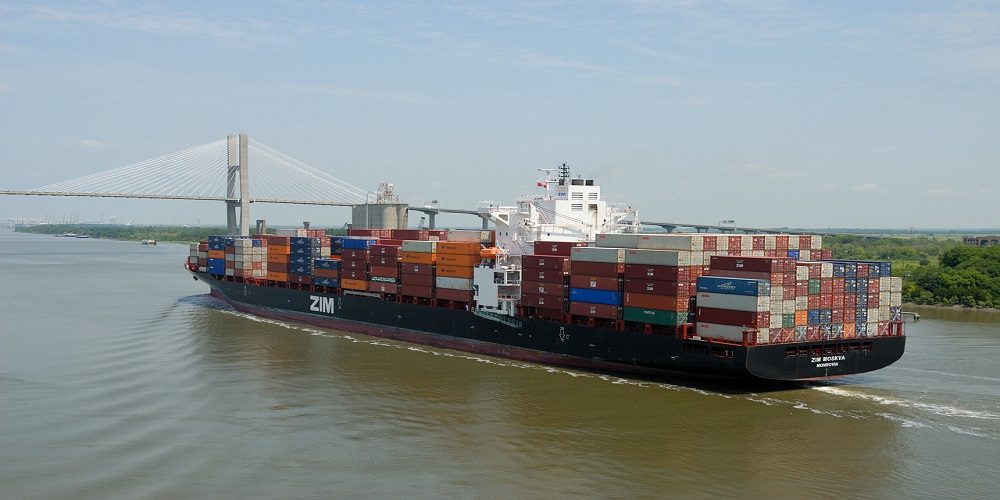Welcome to a fascinating journey into the heart of modern industries, where we unravel the secrets behind their remarkable success. Behind every thriving sector and revolutionary invention lies a set of hidden heroes—the essential industrial goods or services that form the backbone of progress. From cutting-edge technology to robust infrastructure, these five unsung champions are indispensable in shaping our world as we know it.
Introduction
When we think about modern society, images of advanced technology, bustling cities, and global connections come to mind. However, behind all of this lies a crucial factor that makes it all possible: industrial goods and services. These are the backbones of modern industries that drive economic growth and shape our daily lives.
Industrial goods refer to tangible products used by businesses in their production processes. These can range from raw materials like iron ore and petroleum to finished products such as machinery and equipment. On the other hand, industrial services encompass a wide range of intangible activities that support the production and distribution of goods. This includes transportation, logistics, maintenance, consulting, and more.
The importance of industrial goods and services cannot be overstated. They play a vital role in driving economic development by providing essential inputs for manufacturing processes. Moreover, they contribute significantly to job creation, innovation, and overall productivity.
In today’s globalized world where supply chains extend across borders, industrial goods and services have become even more critical. The efficient flow of these inputs is necessary for businesses to remain competitive in the market. For instance, companies rely on raw materials from different countries to produce their final products or outsource tasks such as customer service or IT support.
What is industrial goods and services?
Industrial goods and services are the backbone of modern industries, providing essential support for the production and distribution of goods that we use in our daily lives. These goods and services are crucial for the functioning of various sectors, such as manufacturing, construction, transportation, and agriculture.
Industrial goods can be defined as physical products that are used in the production or assembly of other goods. They can range from raw materials like iron ore and coal to components like machinery, tools, and equipment. These goods are either directly consumed by businesses or used to produce other products. For example, steel is a primary industrial good that is used in building construction as well as manufacturing automobiles.
On the other hand, industrial services refer to activities or processes that support the production of goods. These services may include maintenance and repair work, transportation services, storage facilities, packaging services, and more. Industrial services play an important role in ensuring smooth operations within factories and warehouses.
The importance of industrial goods and services cannot be overstated. Without them, it would be impossible for companies to manufacture products on a large scale or distribute them efficiently. In fact, these goods and services have been key drivers of economic growth in many developing countries.
One significant aspect of industrial goods is their classification into two categories: consumer durable goods (also known as capital goods) and non-durable consumer items (or intermediate goods). Consumer durable goods are those that have a longer lifespan than non-durable ones; they are often expensive investments that require careful consideration before purchasing. Examples include heavy machinery like cranes or tractors.
Ultimately, industrial goods and services are essential for the functioning of modern society. They not only support the production of consumer products but also contribute to job creation, economic growth, and technological advancement. Without these crucial elements, our world would look vastly different, and it is safe to say that we owe much of our progress to their existence.
The five essential industrial goods or services are:
In today’s modern industries, there are certain goods and services that are essential for the smooth functioning of businesses. These goods and services serve as the backbone of industrial production and play a crucial role in driving economic growth. In this section, we will delve into the five most essential industrial goods or services that are vital for powering modern industries.
1) Raw Materials:
Raw materials are the basic building blocks of any industrial production process. They refer to natural resources such as minerals, metals, wood, oil, and gas that are used to make finished products. Without these materials, it would be impossible to manufacture goods on a large scale. For instance, steel is an essential raw material for construction and manufacturing industries, while crude oil is used to produce gasoline, a vital fuel for transportation.
2) Energy:
Energy is another essential industrial good that plays a critical role in powering modern industries. It is required at every stage of production, from extracting raw materials to transforming them into finished products. The most common forms of energy used in industries include electricity, natural gas, coal, and petroleum. Without energy sources like electricity or fuel-powered machinery, it would be impossible to run factories and meet the growing demand for goods.
3) Transportation:
Transportation is an indispensable service in modern industries, as it enables the movement of raw materials and finished products between different locations. From trucks and trains that carry heavy cargo to ships that transport goods across continents, transportation plays a significant role in ensuring the timely delivery of supplies and the distribution of manufactured products.
4) Technology:
With advancements in technology over recent decades, it has become one of the most critical aspects of modern industrial operations. From automated machinery to advanced software systems used for inventory management and supply chain optimization, technology has revolutionized how businesses operate today. It has improved efficiency levels significantly by streamlining processes and reducing human error.
5) Skilled Labor:
Last but not least, skilled labor is an essential service in modern industries. Highly trained professionals, such as engineers, technicians, and managers, play a crucial role in ensuring the smooth functioning of industrial operations. They possess specialized skills and knowledge that are vital for the design, development, and maintenance of advanced machinery used in production processes.
These five essential goods or services—raw materials, energy, transportation, technology, and skilled labor—form the backbone of modern industries. Without them, it would be impossible to meet the demands of consumers and sustain economic growth. Each one plays a unique role in driving industrial production forward and contributing to the success of businesses worldwide.
Real-life examples of how these industrial goods or services are utilized
Essential industrial goods and services play a crucial role in powering modern industries and driving economic growth. From manufacturing to transportation, these goods and services are utilized in various sectors to produce a wide range of products and facilitate smooth operations.
Let’s take a closer look at some real-life examples of how these industrial goods or services are used:
1. Manufacturing: The production of goods is the backbone of any economy, and industrial goods are vital for this process. For instance, heavy machinery such as assembly line robots, conveyor belts, and industrial-grade tools like drills and saws are essential in automotive manufacturing plants. Similarly, food processing industries rely heavily on specialized equipment like mixers, grinders, ovens, and packaging machines to mass-produce food products.
2. Energy generation: Industrial goods such as turbines, generators, transformers, solar panels, windmills, etc. play a significant role in producing electricity for homes, businesses, and other industries. These goods harness different sources of energy, like fossil fuels or renewable resources, to generate the power that runs our society.
Conclusion
The backbone of modern industries relies on a diverse range of goods and services working together in harmony. As technology continues to advance, we can expect to see further innovations and developments in these areas, driving industrial progress forward. It is essential for businesses to adapt and embrace these changes to stay competitive in today’s fast-paced industrial landscape. By recognizing the importance of these five essential goods and services, we can appreciate the complex network that supports our modern way of life.

































